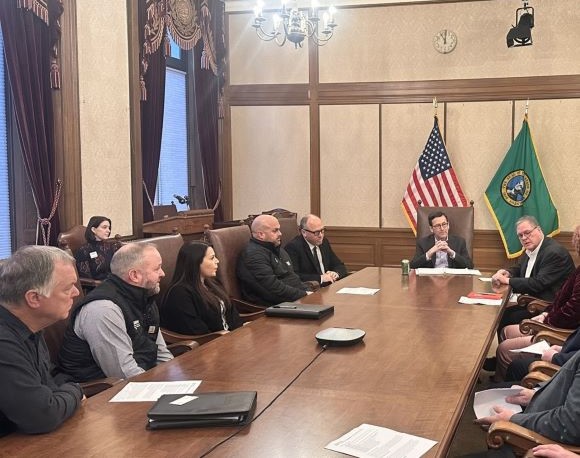May 27, 2025
The Washington State Attorney General’s Office and the Building Industry Association of Washington today filed their notice of appeal to the Washington State Supreme Court in the constitutional challenge to Initiative 2066.
A fresh chance to preserve energy choice
Initiative 2066, passed in November by nearly two million voters, protects natural gas as an energy choice.
BIAW filed the initiative after spending years fighting multiple efforts to ban or restrict natural gas as an energy choice in Washington.
“After years of opposing political efforts to ban natural gas in Washington, BIAW fought back at the ballot box,” said BIAW’s Executive Vice President Greg Lane. “We crafted I-2066 carefully with a singular goal – preserving natural gas as an energy choice for current and future homeowners. And every step of the way, opponents have filed lawsuits seeking to stop us.
“We’re confident the Washington State Supreme Court will reject this constitutional challenge as the frivolous claim it is,” he said.
Shortly after BIAW filed the initiative, I-2066 opponents mounted an unsuccessful legal challenge to the initiative’s title that delayed the ability to gather signatures.
Despite this, BIAW and natural gas proponents gathered more than a half a million signatures in just seven weeks. Opponents then filed an unsuccessful lawsuit challenging the certification process.
Constitutional challenge keeps natural gas choice in limbo
Environmental groups, the City of Seattle, and King County challenged the constitutionality of the new initiative in King County Superior Court shortly after it passed in 2024.
That case claims the initiative is unconstitutional because it violates the single-subject, subject in title, and amendment by reference requirements in the Constitution.
BIAW and the Washington Attorney General’s Office countered these arguments.
“Every single section of 2066 addresses protecting the choice to access and use natural gas,” Lane said. “Because the governor and other political proponents used every avenue available in their quest to ban natural gas, there were many places in state law that needed to be changed to ensure that customers continue to have an energy choice.
“And that’s what 2066 does—ensures Washington residents and businesses can access natural gas if they want it,” Lane said.
King County judge rules as expected
King County Superior Court Judge Sandra Widlan heard the constitutional challenge to I-2066 on March 21 with former governor Jay Inslee in the courtroom. Inslee, who appointed Widlan, made banning natural gas a top priority during his time as governor.
Shortly after hearing arguments, Widlan issued an oral ruling in favor of the Plaintiffs. She then waited nearly two more months before filing the final order, delaying the ability to appeal and keeping the initiative implementation in limbo.
Constitutionality remains in question
Technically, laws ruled unconstitutional remain in effect until the judge issues her final order with the court. Now that the AGO and BIAW have filed their appeal, the question of I-2066’s constitutionality remains unanswered.
“That means local jurisdictions may still allow permits for natural gas until the Washington Supreme Court rules,” Lane said. “Members building in jurisdictions that were adapting to the changes of I-2066 may be able to persuade building code officials to continue issuing permits in accordance with I-2066 until the Washington Supreme Court ultimately rules.”
Next steps
· Within 15 days after filing the notice of appeal, the parties seeking direct review must serve on all other parties and file in the Supreme Court a statement of grounds for direct review.
· The Plaintiffs will then have 14 days to file their response to our statement of grounds for direct review.
· If the Supreme Court accepts direct review of the I-2066 case, the case may be set on the court’s calendar for the fall or winter. If the Supreme Court denies direct review, they will automatically transfer it to the Court of Appeals for determination. (See Washington State Court Rules of Appellate Procedure 4.2)








